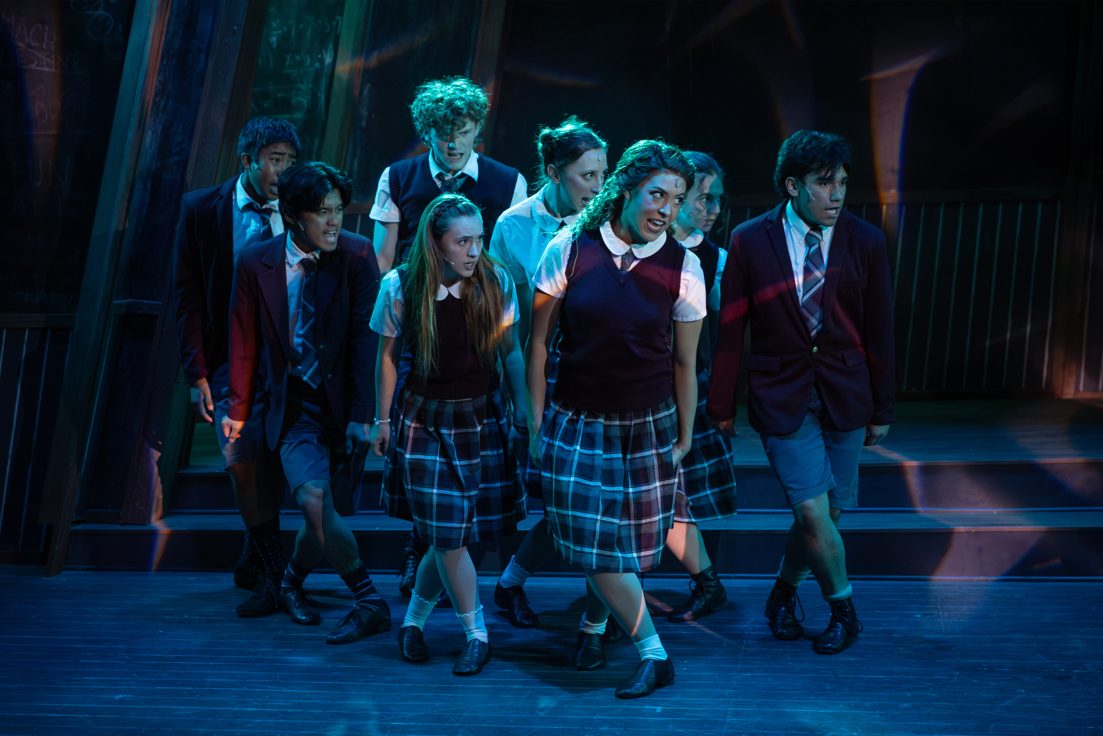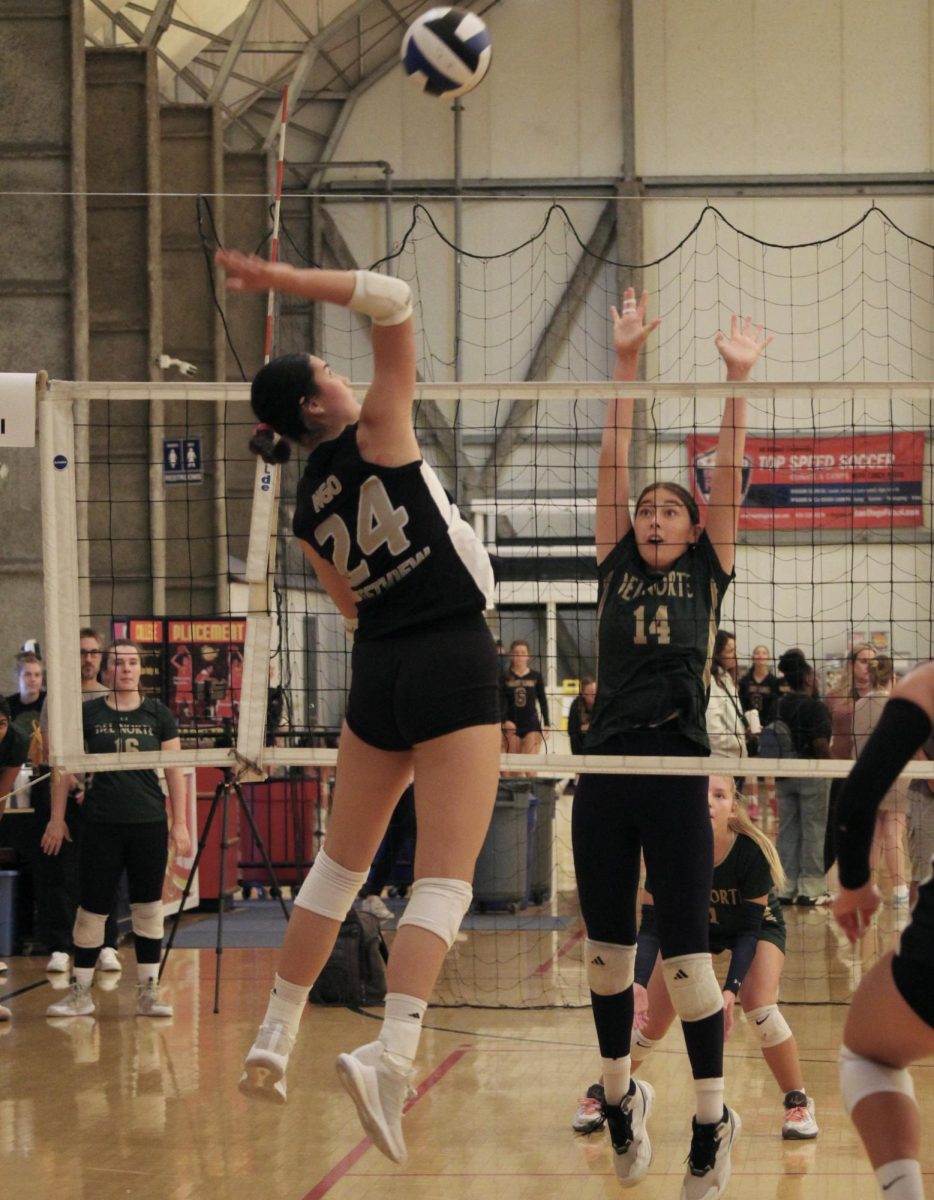Walking on stage at the El Camino Concert Hall, March 2, Wind Ensemble prepared to perform their two musical pieces in front of the panel of adjudicators and audience for the first band festival of the season. Silence filled the room as band director Mitchell Way lifted his baton to signify the start of their first piece, Michael Markowski’s “Elixir,” followed by Alfred Reed’s “Armenian Dances.”
The Wind Ensemble’s performance ended with a rating of Unanimous Superior, the highest rating possible for a band.
After spending the six weeks prior rehearsing, tubaist Thomas Fernandez (11) said he felt confident in the ensemble’s ability to perform well.
“[I was] a little nervous, but very excited,” Fernandez said. “[When we] first [got the pieces], we did a run-through. We absolutely messed up — chaos everywhere — and then we nitpicked it for six weeks, mostly [going] through the fine details. We have been working on them for a long time. I know them [like] the back of my hand, I can sing them in the shower. Now, we can finally just make music. It’s beautiful.”
According to Way, the pieces the ensemble is suggested to play by the Southern California School Banners Association (SCSBA) are based on their overall band ranking on a scale of one to five, which is determined by the number of members the band has, their skill level, and how many of them have outside skills usually due to private lessons. Although the judges send out official lists of pieces ensembles can play Way chose his own songs and applied to get them cleared.
While preparing for the performance, one of the things the ensemble worked on was their cohesiveness which, according to Way, is one of the most important aspects of the ensemble’s performance.
“An ensemble is an organism,” Way said. “Those 40-ish people become something together, and there’s some spirituality to it. Their ability to be cohesive is critical, [and] not just musically. You have to at least respect the person sitting next to you. It’s just like a sports team in that you have to at least respect your teammates and get along. They do that really well.”
Beginning with “Elixir,” Way said that the emotions of the song were well conveyed through the ensemble’s music.
“[Their playing] was very expressive,” Way said. “They’re very passionate about it. All the adjudicators get that, but they’re really into what they’re doing. That’s the number one thing. You can always get cleaner, but if people are just [dispassionate] about [playing music] and they’re not performing, then it’s not a good performance.”
For percussionist Leon Song (12), a big part of the ensemble’s amalgamation stems from their trust in one another.
“There’s this trust that you form with your other band members,” Song said. “If we trust that we’ll get all of our parts down, then we’ll be able to just play our parts. [This applies to] ensemble specifically, because we have that skill. We have the experience to know how to work together.”
Towards the end of “Armenian Dances,” the band’s tempo began to speed up more than usual. However, according to clarinet player Jonathan Rhee (10), this didn’t stop the flow of the performance.
“[The tempo] was noticeably faster than what we had been [practicing], but I wasn’t really worried about it at all in the moment,” Rhee said. “It was just the natural groove that we were going towards and it just felt natural. I think we did a pretty good job of going faster at the same rate so that we could be cohesive.”
Way said he had no doubt that the band would be able to execute the piece well, even with the changed tempo.
“It got a little wild for a second and they came right back together,” Way said. “They got a little bit too fast and they held onto it. I knew that they knew the piece well enough, and they’re all really smart. Even if it came unhinged a little bit, [I knew] they would recover, and they did. There’s a lot of subconscious processing that happens in that moment. My brain just locked on to the trumpet line and trying to drive them. They did. It all worked out.”
According to Way, they were cohesive during both of their songs. For many members of the band, including Song, their ultimate superior ranking wasn’t surprising as the ensemble has a history of getting ultimate superiors. However, Song felt like the ensemble this year was especially good.
“I really liked how [we] as a band did,” Song said. “We played more than just music. We [were] playing more than just notes. I know we rocked it out there.”


![Jolie Baylon (12), Stella Phelan (12), Danica Reed (11), and Julianne Diaz (11) [left to right] stunt with clinic participants at halftime, Sept. 5. Sixty elementary- and middle-schoolers performed.](https://wvnexus.org/wp-content/uploads/2025/09/IMG_1948-800x1200.png)
![Siddhi Bhavsar (10) [left] and Riddhi Bhavsar (10) [right] carry the NJROTC flag, Sept 13. The annual Poway Rotary Parade gave the unit the chance to represent Westview.](https://wvnexus.org/wp-content/uploads/2025/09/DSC00628-1200x900.jpg)






